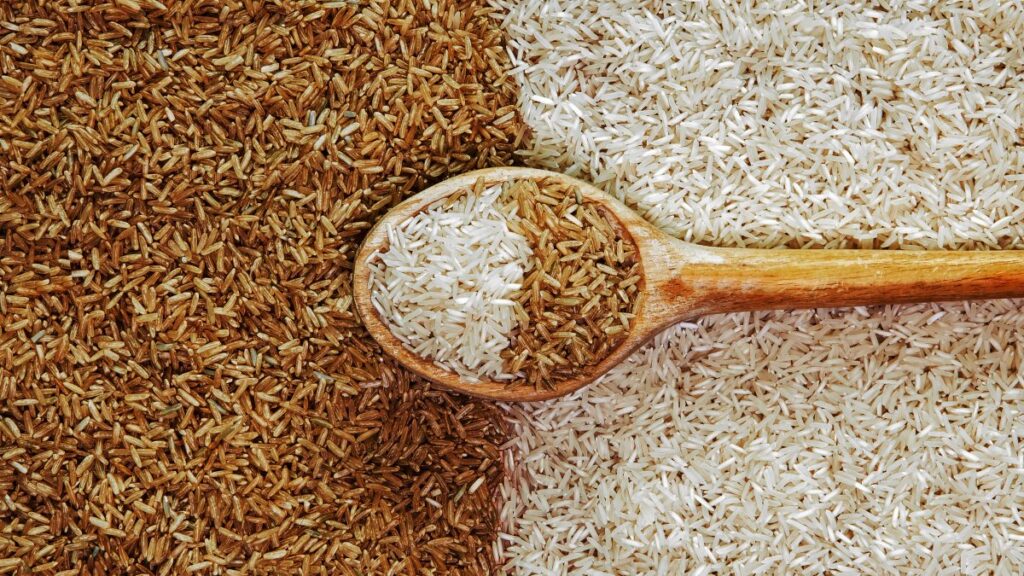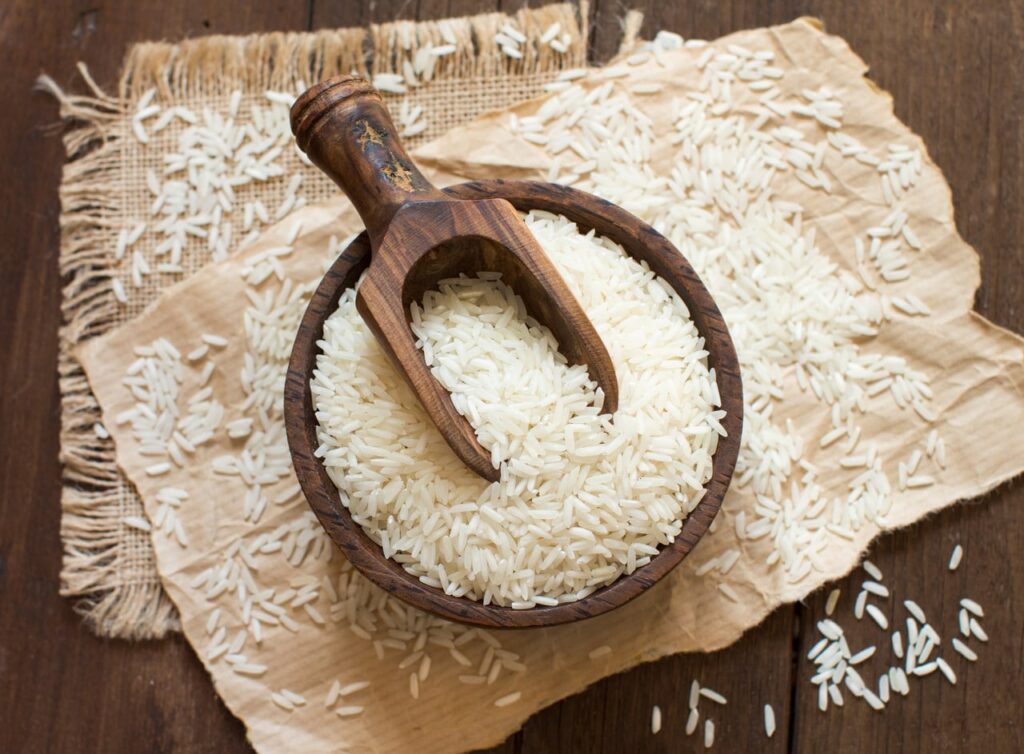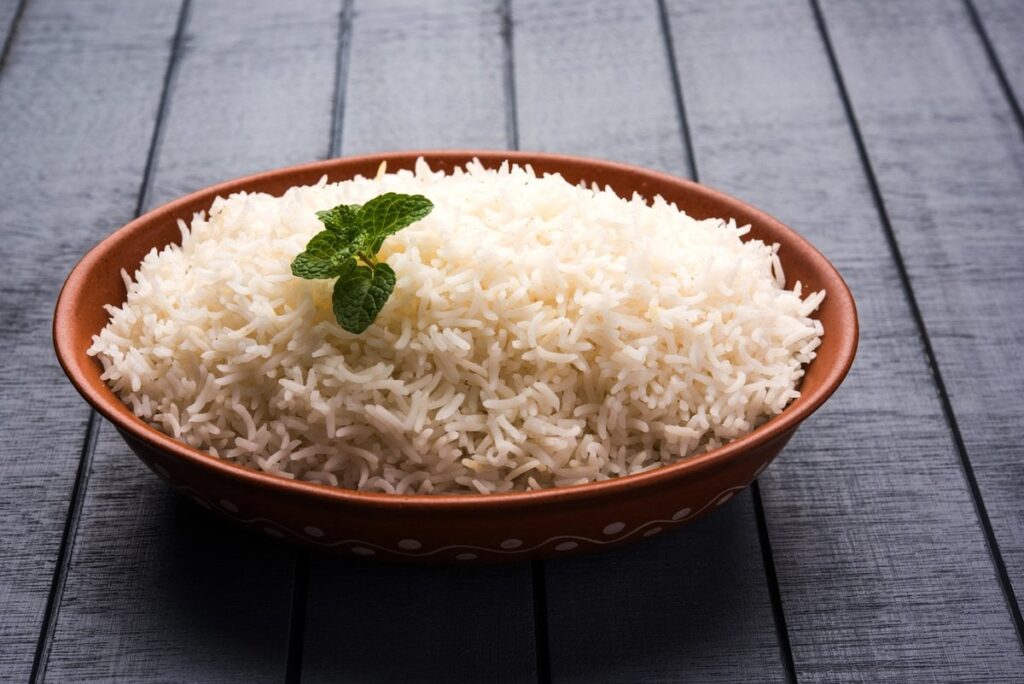About White Basmati Rice Nutrition Facts
Basmati Rice is native to India and Pakistan, with India being responsible for 2/3 of the global supply. While its true origins are not clear, archaeologists have discovered a type of long-grain rice near Udaipur, India dating back to between 2000 and 1600 BC that they believe to be an ancestor of the Basmati rice we enjoy!
Basmati rice has been cultivated for thousands of years in the foothills of the Himalayas. Today, it’s a staple in many Indian dishes and is enjoyed all around the world.
As basmati rice has 2 varieties namely, white and brown, both have a nutty taste and a distinct smell. But, out of these varieties, white basmati is more processed. The hull, bran, and germ are all removed. With brown basmati, only the hull gets removed. Both types make for a delicious and healthy addition to your diet.
So, while talking about the white basmati rice nutrition facts, if we did not talk about its nutrition info, it would be a space in this article. So, let’s see how basmati rice is and what nutrients are processed in white basmati rice.

Nutrition Information of white basmati rice
- Serving size: 0.5 cup
- Calories: 160℅ Daily Value: –
- Total fat: 0 grams. : 0℅
- Saturated fat: 0 grams. : 0℅
- Trans fat: 0 grams. : –
- Cholesterol: 0 milligrams. : 0℅
- Sodium: 0 grams. : 0℅
- Potassium: 0 grams. : 0℅
- Total Carbohydrates: 36 milligrams. : 12℅
- Dietary fiber: 1 gram. : 4℅
- Sugar: 0 grams. : –
- Protein: 3 grams. : 6℅.
Percent, daily values are based on a 2000-calorie diet. Your diet values may be higher or lower depending on your calorie needs.
Here is the other nutritional value of this white basmati rice.
- Vitamin C: 0℅
- Iron: 0℅
- Vitamin B6: 0℅
- Magnesium: 0℅
- Calcium: 0℅
- Vitamin D: 0℅
- Cobalamin: 0℅
- Vitamin A: 0℅.
Dietary Importance Of White Basmati Rice
When talking about the white basmati rice nutrition facts, we need to talk about the diet importance of it also. So, what is the importance of white basmati rice in our diet? So, let’s what are they.
At first glance, basmati rice likely doesn’t look all the different from other types of rice. With one sniff of the grain, however, you will notice a major difference. Basmati rice has a very distinct smell that many describe as being similar to popcorn when it’s cooked.
Educational Fact: The word “basmati” in Hindi means “full of aroma” or “fragrant”. In some places, it is called the Queen of perfumed rice”.
When talking about white basmati rice nutritional facts, we need to talk about the health benefits of this grain. White basmati rice provides many health benefits, including;
Health Benefits Of White Basmati Rice
Diabetes
Most types of rice, particularly white rice, have a high glycaemic index, and basmati rice is much lower on the scale. With a glycaemic index between 50 and 58, basmati rice is a low to medium-glycaemic index food. If you have diabetes, small portions of basmati rice can be a part of your healthy diet.
Fibre
In addition to a lower glycaemic index, basmati rice can also contain a significant amount of fiber. Just be sure to check the nutrition label. A higher intake of dietary fiber can help to reduce the risk of developing Type 2 diabetes.
Low fiber intake can lead to digestive issues such as constipation. The fiber in basmati rice is soluble, meaning it adds bulk and helps move water along the digestive tract.
Better heart health
Eating whole grains like brown basmati rice is linked to a lower risk of heart disease. So, what about white basmati rice? Consumption of white basmati rice will be very low to control the risk of heart disease. Whole grains help to reduce blood cholesterol levels. They also help to reduce the risk of high blood pressure, a risk factor for heart disease.
Reduced risk of cancer
When talking about white basmati rice nutrition facts, we understand that brown basmati rice has more fiber than the white version. It’s the same because brown rice also does not contain brown basmati rice. Higher fiber diets can help to reduce your risk of developing certain types of cancers, particularly colorectal cancer.
Educational tip: Eating 3 ounces of whole grains per day may lower your risk for this type of cancer by about 17℅.
Better brain health
Basmati rice both varieties are high in B vitamins, including B1. It has 22℅ of your daily recommended intake in each serving.
B1 vitamin is crucial for brain health, and a deficiency can lead to a condition called Wernicke encephalopathy.
So, when talking about the white basmati rice nutrition facts, we will focus on the nutrients per serving after this white basmati rice.
Nutrients Per Serving
1 cup of cooked white basmati rice contains,
- Calories: 210
- Protein: 4 grams
- Fat: 0.5 grams
- Carbohydrates: 46 grams
- Fiber: 0.7 grams
- Sugar: 0 grams.
Both basmati rice varieties also contain many other important nutrients including,
- Vitamin B1
- Vitamin B6
- Copper
- Folate
- Iron
- Magnesium
- Phosphorus
- Zinc.
However, the nutrients in white basmati rice are also similar to those found in other types of white rice. Brown basmati rice is also comparable to other types of brown rice.
So, when focusing on the white basmati rice nutrient facts, we also hope to show you some quick tips about them. There are as follows,
Quick Tips
While both white and brown versions of basmati rice provide vital nutrients, brown basmati rice contains more fiber, phosphorus, zinc, and B Vitamins. Brow basmati rice is also lower on the glycaemic index. White basmati rice, however, is easier to digest.
Conclusion
We hope you all have the proper knowledge of white basmati rice nutrition facts. So, what is next? If you stay tuned to our blog, you can learn all about brown basmati rice also. Then we will also discuss the health benefits of brown basmati rice. Then you can decide whether the brown white basmati rice and white basmati rice.
All about white basmati rice nutrition facts are included in this article. So, we invite you to read every point that is included here and get the actual knowledge of this article. If this article is truly helpful for you, then you can also share this article with your friends and among the ones who are interested in this factor. Until next, time, eat healthily and be healthy!


